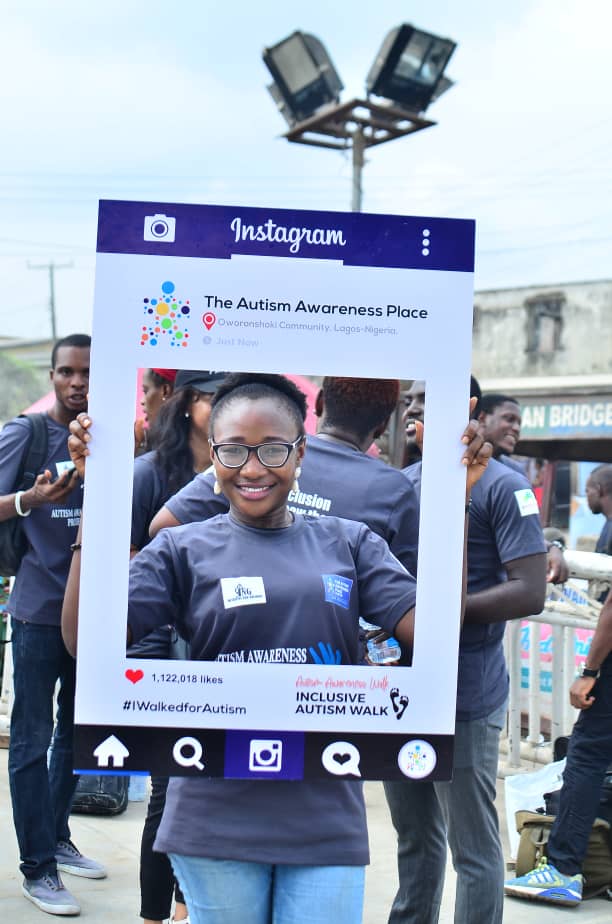Omotoke Olowo Olugbode is a passionate inclusive education advocate with over 5 years’ experience in education, community service, and advocating for children with disabilities. She is the Founder and CEO of The Autism Awareness Foundation, an organization that is focused on inclusive education for children living with disability especially children on the Autism spectrum disorders. She is also the CEO at Theraconnect an online mobile App that connects parents of children with special needs to the nearest and affordable therapist.
Omotoke holds a Bachelor Degree in Education (Educational Foundation and Counseling) from Obafemi Awolowo University and a certificate in Youth Mental Health First Aid in USA. She is a Mandela Washington fellow and a 2020 LEAP Africa SIP Fellow.
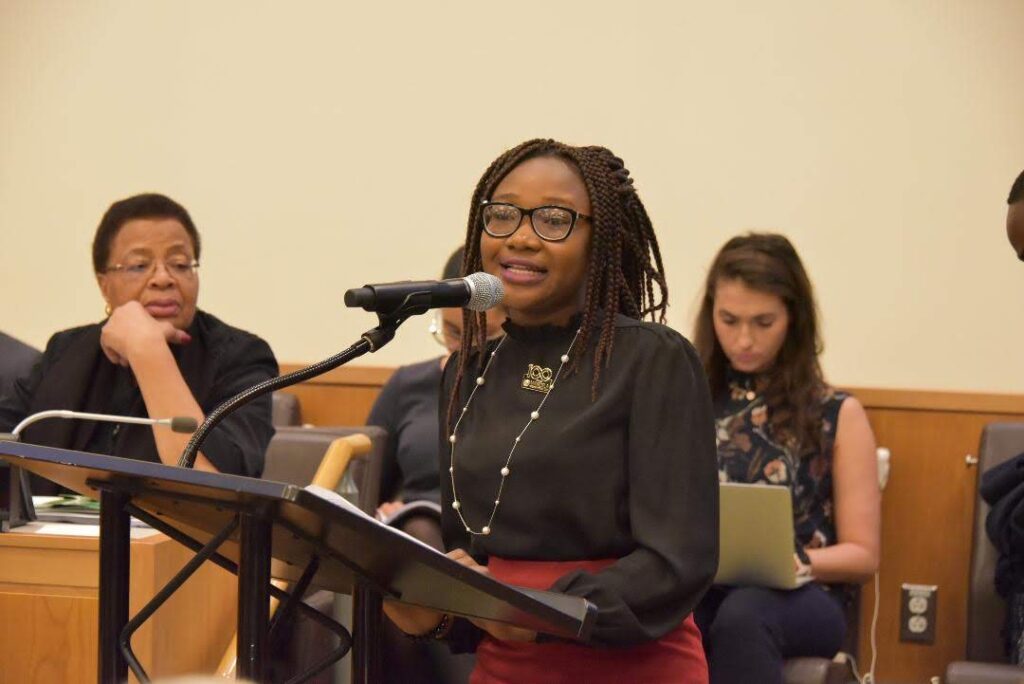
Omotoke has spoken at International conferences including, The Concordia Summit at the Grand Hyatt, Voice of women at Wagner College. She also had an internship opportunity with the Department of Behavioral Health and Intellectual Disability, Philadelphia, USA
Omotoke believes education is the bedrock of everything and without it she would not have been able to achieve all she has.
She shares her “Ruby Girl” story in this interview.
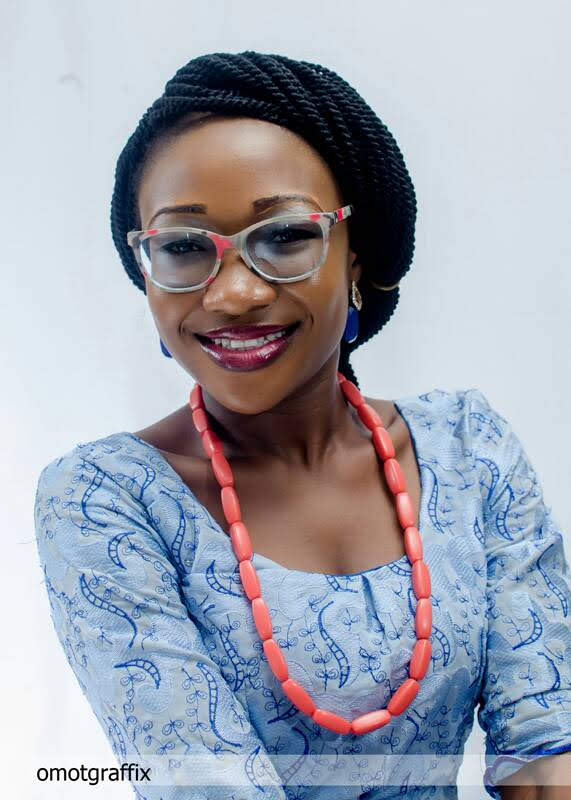
1. Who is Omotoke Olowo Olugbode?
Omotoke Olowo Olugbode is a passionate inclusive education advocate with over 5 years’ experience in education, community service, and advocating for children with disabilities. She is the Founder and CEO of The Autism Awareness Foundation, an organization that is focused on inclusive education for children living with disability especially children on the Autism spectrum disorder, while also raising awareness and advocacy in the community to change perspective and myths about Autism as she believes that each child counts and each child can learn irrespective of their disability, mental health or environment.
She is also the CEO at Theraconnect an online mobile App that connects parents of children with special needs to the nearest and affordable therapist.
Omotoke holds a Bachelor Degree in Education (Educational Foundation and Counseling) from Obafemi Awolowo University and a certificate in Youth Mental Health First Aid in USA. She is a Mandela Washington fellow, Outstanding Global Youth Ambassador for TheirWorld UK where numerous articles on her advocacy has been published, an Ashoka ChangemakerXchnage Fellow and a Robert Stiffing Alumni. She is also a 2020 LEAP Africa SIP Fellow.
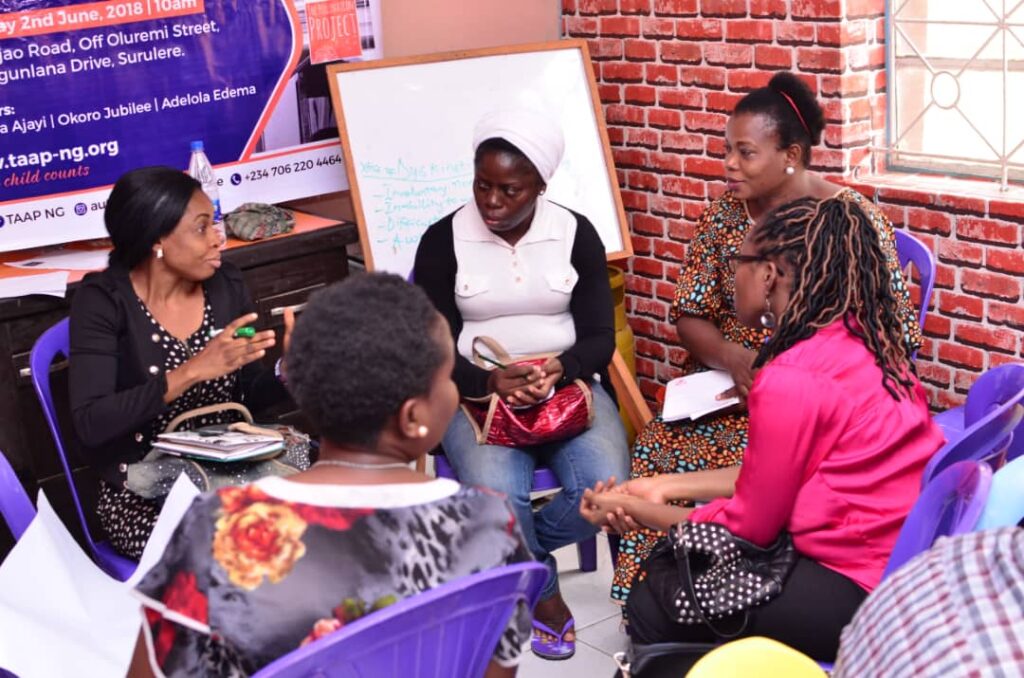
She was awarded The Essex County Board of Chosen Freeholders New Jersey, and also awarded as International Associates on civic Leadership at Wagner College, New York.
Omotoke has spoken at International conferences including the MakeImpossiblePossible Summit at United Nations General Assembly, The Concordia Summit at the Grand Hyatt, Voice of women at Wagner College. She also had an internship opportunity with the Department of Behavioral Health and Intellectual Disability, Philadelphia, USA
2. What is The Autism Awareness Foundation (TAAF)?
The Autism Awareness Foundation is a not for profit organization that raises awareness about disability and inclusion of children with disability in the classroom and society while eradicating stigmatization and marginalization. We ensure children with disability especially children on the autism spectrum disorder get access to good and quality therapy for early intervention to function and get included in the school system as most children with disability are always denied access to inclusive and quality education.
The Autism Awareness Foundation started in 2017 as a not for profit where we create awareness for children on the Autism spectrum disorder, we have been involved in active teachers training and parental support group, due to our work expansion and experience we set up the social enterprise of THERACONNECT as physical connecting platform before thinking of the App. Currently, since May 2018, we have been involved in outsourcing over 50 therapist and special needs educators to parents, teachers and school.
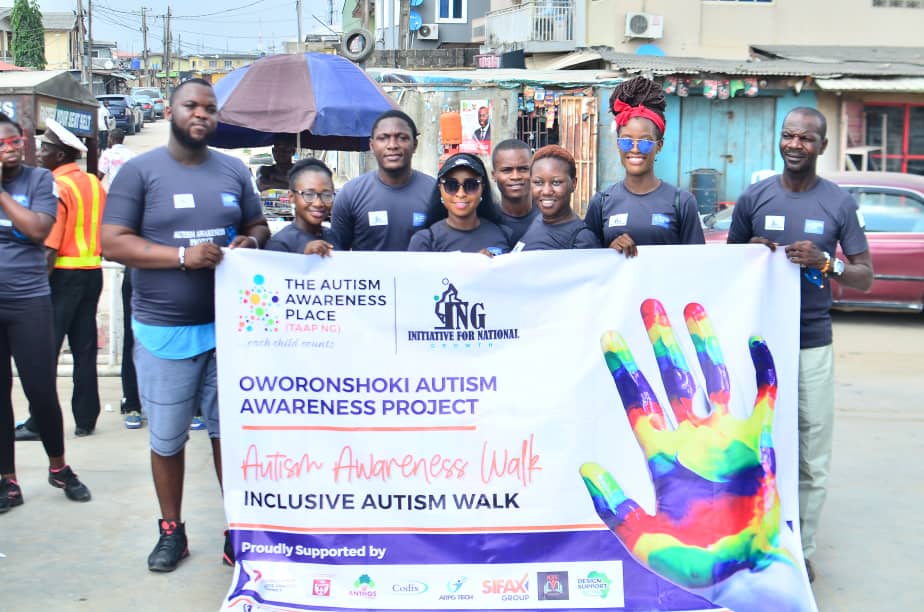
3. What prompted you to start an inclusive education?
I am a Teacher by profession and I got into the Teaching sector as a zeal I have for Teaching which was further influenced by my friend who had a disability during my secondary school days, and I watched how he couldn’t get the adequate and efficient education during our school days.
Teachers would rather not have her in their classroom and she most often does not come to school at all. So, from there I developed a passion to become a teacher and a deep commitment for children living with disability so that I could be able to teach them in the classroom. After going through my University Education, I discovered that my Teachers then could not teach my friend because they do not have the knowledge and skills to teach children with disability.
The spark and motivation to start my Social Initiative come after reading an online article about a mother with a child with Autism, about how people refer to her child as being possessed, this brought back memories of my experience in secondary school with my friend.
Autism as a disability was strange to me and foreign, and as such I wonder if children in my community has this disability and they don’t have access to education.
I decided I want to advocate for children living with Autism because its disability in which a lot of parents and teachers are not familiar with and a lot of stigmatization and marginalization.
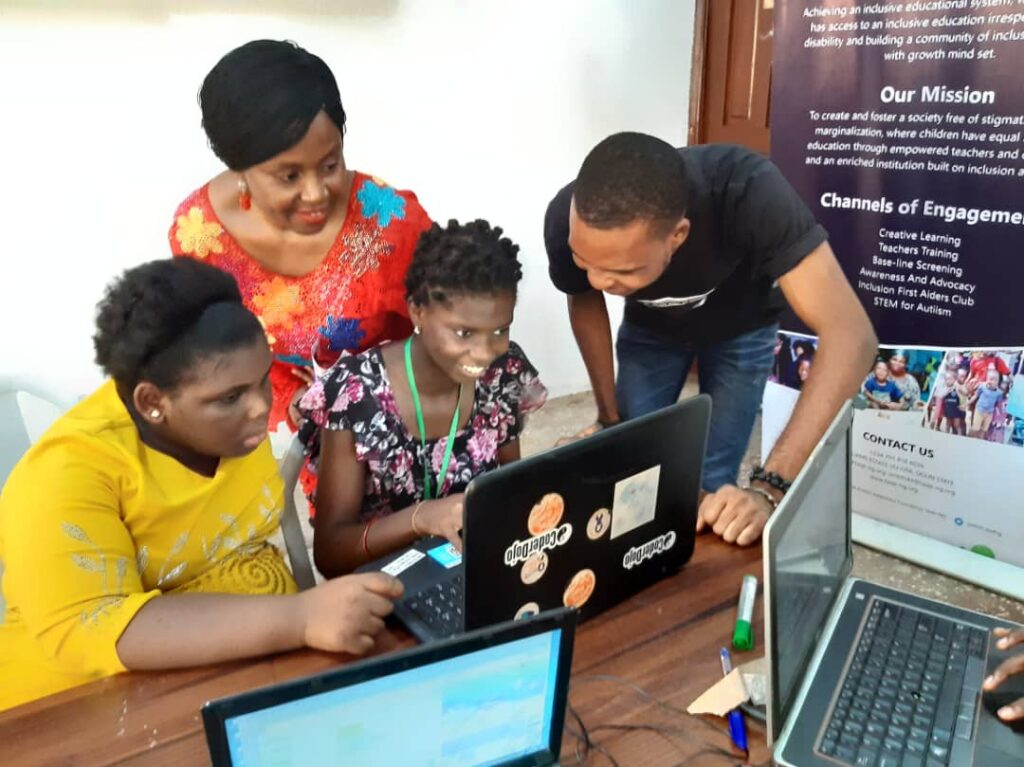
4. Apart from running an inclusive education that other thing to you into?
Apart from my NGO, The Autism Awareness Foundation, I am also an Innovator, I am currently working on an online App where parents can connect with Therapist without leaving their home which saves them stress, money and time.
I am a social Entrepreneur, I currently run a social enterprise called “The Sensory Place” that focuses on sensory materials, Toys and Montessori schools equipment for parents and schools owner while also consulting for schools on issues pertaining to inclusion in their classroom and connecting with therapist to schools and parents.
“We ensure children with disability especially children on the autism spectrum disorder get access to good and quality therapy for early intervention.”
5.How do you relax despite your busy schedule?
Netflix and gist is my friend when I am less busy. As a person who provide support in issues relating to mental health of parents and disabilities, I take my mental health seriously too, I know when I need to close my laptop, turn off my phone data, decline a speaking engagement and just relax, either with talking long hours on the phone with friends, watching amazing series on Netflix or just sleeping. I am more of an indoor person than outdoor.
“I decided I want to advocate for children living with Autism because its a disability in which a lot of parents and teachers are not familiar with and a lot of stigmatization and marginalization”.
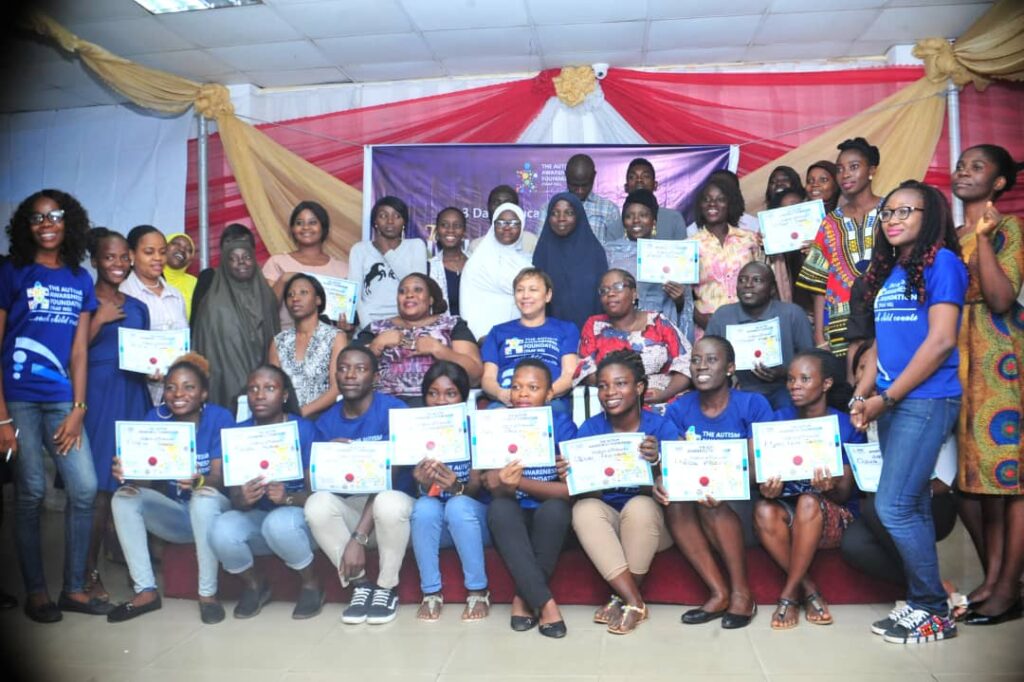
6. What has the pandemic taught you?
The pandemic has taught me how to prioritize, most time we waste our time on things that are not really important but the pandemic has really taught me to cherish each moment, love people around and check on my families more. It awakened my sense of commitment and knowing how to show love to others too, even during the pandemic, I was still on long calls with parents on how they can support their kids at home in terms of therapy and achieving their milestones
7. As a global youth figure, what has been your achievements on inclusion?
My achievement on inclusion has always come through my NGO, my impact has made over 100 parents accessed therapy for their children for early intervention, increase the awareness around autism spectrum disorder to over 5000 people in the community, through our annual Walk Aware Autism and trained over 1000 teachers on skills needed to include children on the spectrum in their classroom both online and physical training, with the advent of our online support for 30 parents as a form of continued training and counseling.
In all of this, my greatest achievement is when parents call me after their kids have been able to achieve a developmental milestone and when they get accepted in an inclusive school, the joy and smiles on parents at such moments always mean everything to me.
8. What was growing up in a Nigerian home like for you? Did it in anyway contribute to everything you do now?
Growing up was a bit challenging but I grew up in a family full of love. Both my parents are quite loving and amazing people, my mum is the disciplinarian of the house while my dad condones me a lot, people will say it’s because we look alike.
I never had all I wanted while growing up but received love from sisters all the time, we shared everything and we could confide in each other.
Well, I will say my upbringing definitely contribute to what I do now, because I could feel what it means to be like one is unworthy or not enough. I understand the pain of women with children with disabilities in rural communities having being born and raised in one at Oworonshoki community, so yes my passion for setting up The Autism Awareness Foundation definitely stemed up from my own personal experience too.
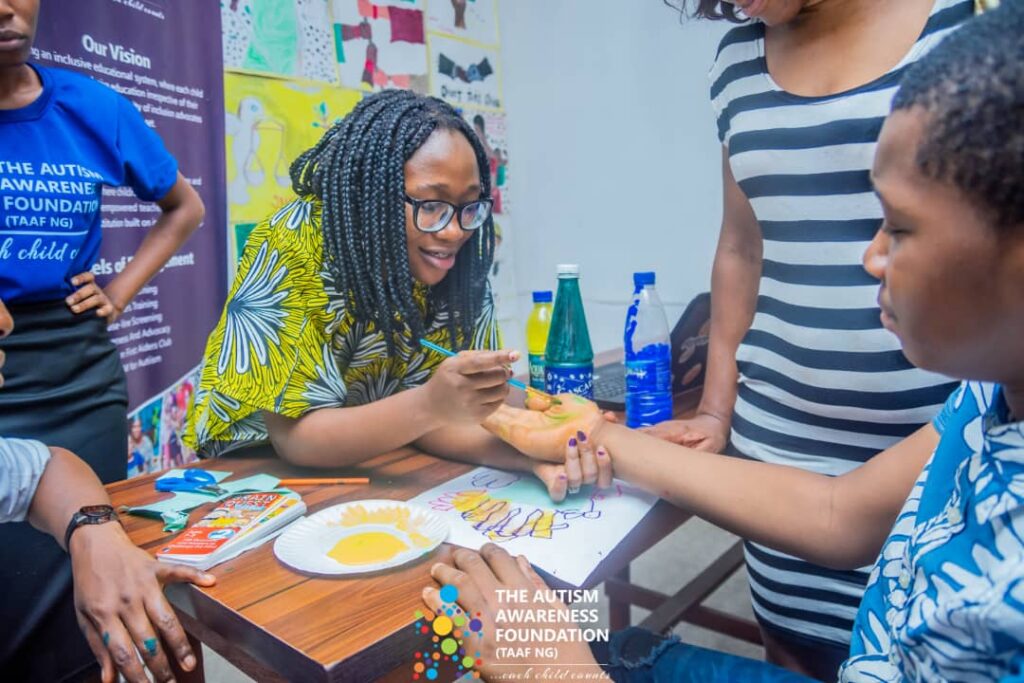
9. What are the challenges you faced when you became an inclusive educator? Do you still experience them? And also how were you able to overcome them?
Challenges are bound to happen, will happen and they still happen, one of the challenges I faced is the stigmatization and marginalization that comes with working with children with disability which is a big problem of acceptance and inclusion, another challenge is the myth associated with children with disability as a punishment from God as such most parents in my community prefer to keep their children at home and lock them inside rather than bring them out for assessment and therapy, as most schools won’t accept them and when schools finally accept them, other parents in the school sometimes withdraw their children from the school, saying they don’t want their children to catch the disability. And finally I am faced with the challenge of lack of trained teachers to facilitate learning in the classroom. I have been able to overcome these challenges through trainings and holding meetings with school owners to explain that disabilities are not contagious and children benefit more when they learn in inclusive settings.
10. If you were to be the President of Nigeria for a day, what would you change?
If I were to be the president of Nigeria for a day, I would change the Educational sector. The Educational sector has become a shadow of itself and what it is supposed to achieve, most public schools lack trained teachers, use outdated curriculum and old teaching methods that does not facilitate independent and collaborative thinking on the part of students. Our graduates can’t even compete globally and our state of inclusive education is nothing to write home about especially with no therapist and special educators to facilitate learning. After changing the Educational sector, I will definitely reform and change the health sector, too much death, misdiagnosis and sometimes lack of doctors to train patient has led to more death than anything in recent years.

11. Mention 3 women who inspire you and why?
One of the women who inspire me is Clare Henshaw, she runs Girls Inspired Foundation, she has gone off to inspire many girls and yet with an humble and kind spirit, I am surely learning humility from her.
Another woman that inspires me is Jasmine, Jasmine is a mother to a child on the autism spectrum disorder who I met in Philadelphia, despite her position she has constantly been reaching out to me on how to provide support for more mothers in Africa and especially Nigeria.
Lastly is my Mother, being a mother to four ladies without a boy child, I know we all know how the narrative would have been, but she have kept it all together, fireful and always there for us her children, she constantly teaches faith and trust in the most difficult time.
12. Where do you see yourself in the next five years?
In the next five years, I see myself running The Sensory Place into a big social enterprise, settling up a safe center for therapy and play center for inclusion of children with special needs and disabilities while they also learn a skill through our coder dojo club. I see myself running different starts up into big businesses and ensuring that I am constantly giving back to the society. I also see myself in a place of policy advocacy and implementation at the government level to ensure policy reform on inclusive education and ensuring inclusion in the workplace where each child can truly count.
13. If you were given the opportunity to address a group of young females five years younger than you, what will be your advice to them?
I will tell them to explore all the opportunity they have at their disposal, aim for the sky and land among the moon, dare the impossible and to keep showing up for themselves. I will tell them that impossible is nothing and they are born to do great and amazing things. They should never underestimate themselves and to keep shattering limits and breaking new grounds.
